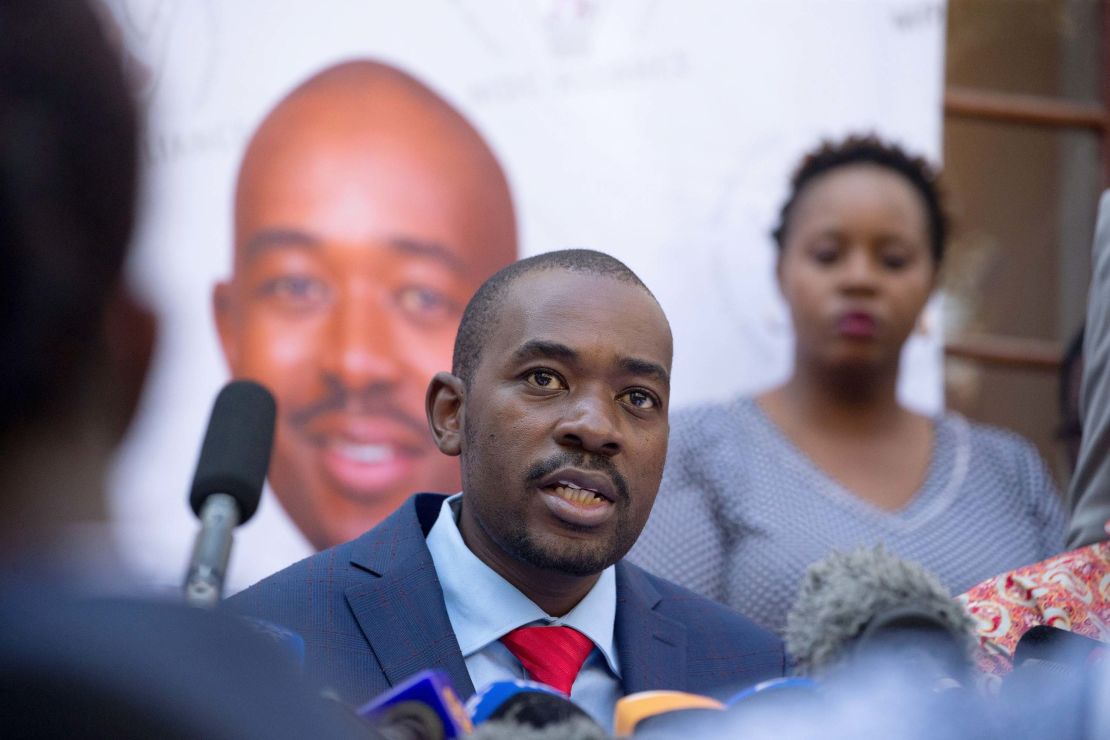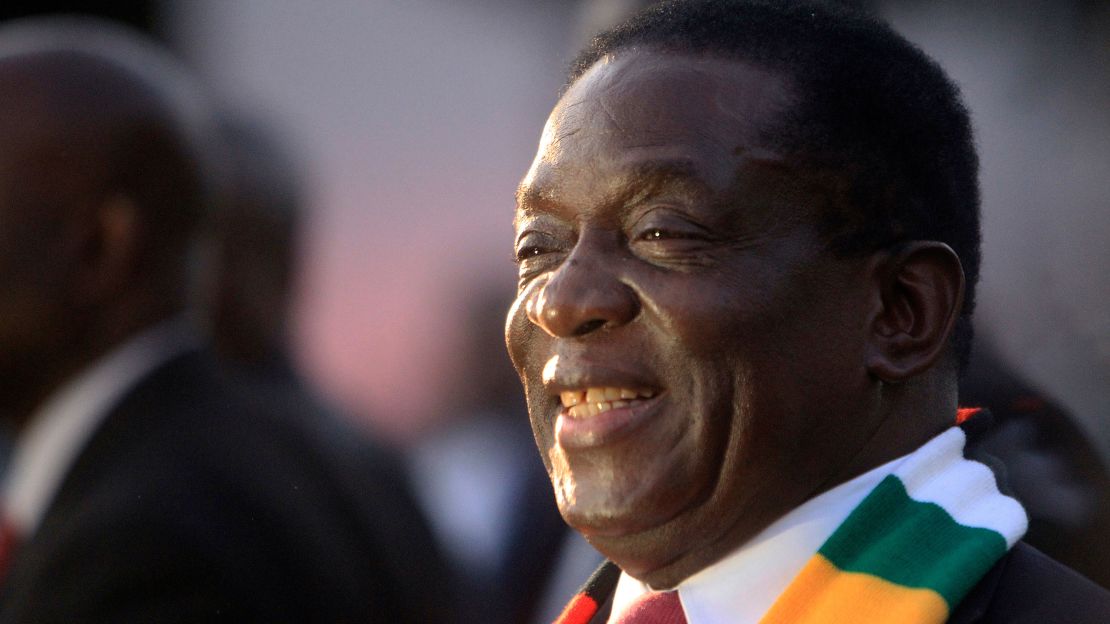The six masked gunmen arrived in an unmarked pickup truck at a modest house in Highfield West, a suburb in Zimbabwe’s capital Harare.
It was just before 2 a.m., witnesses said, and the group had just one mission.
They were searching for Happymore Chidziva, leader of the opposition party’s Movement for Democratic Change (MDC) Youth Alliance.
Jongwe Matanga, a tenant at the house, said the gunmen broke down the doors of other houses on the compound and beat several female tenants, holding a rifle to one of their heads.
“I saw a man holding a gun and then he walked a few steps and I was beaten,” said Matanga. “‘It is either Happymore’s life or it is yours,’ they shouted!”
But the gunmen weren’t satisfied.
Matanga said they abducted him and another tenant and drove them into a remote part of Harare where they beat them for over an hour. He shows the deep bruises on his arm and buttocks.
Although Matanga said he filed a police report, he doesn’t believe that the gunmen will ever be found.
Brutal, sweeping crackdown
The early-morning raid – just days after Emmerson Mnangagwa, leader of the ruling Zanu-PF party, was declared the winner in the country’s first election since veteran strongman Robert Mugabe was ousted in a coup last November – does not appear to be an isolated incident.
Human rights groups, opposition leadership and eyewitness testimony point to a brutal and sweeping crackdown in Harare in the aftermath of the disputed presidential poll on July 30.
They also say scores of opposition leaders are now on the run, more than two dozen opposition members are facing serious prison sentences for inciting violence and the apparent calm in the capital is just a facade.
The gunmen sweeping through Harare still have not found Chidziva.
CNN managed to interview him over Skype. On the run and too afraid to turn himself in, he said his name, along with those of several opposition leaders, was on a search warrant police used to raid MDC party headquarters last week.

Chidziva said there is only one reason the group of gunmen, who he believes were military in plainclothes, wanted to grab him.
“They want to make sure that we don’t mobilize our people for street protests. So they are targeting people like me because they know I will be instrumental in mobilizing people,” he said.
Dashed hopes for a new chapter
The election was supposed to be a new chapter for Zimbabwe, a way for the government to end sanctions from Western powers and convince investors to come back.
But the opposition refuses to concede the poll, claiming widespread rigging of the vote. Opposition leader Nelson Chamisa, speaking on Friday, called the results “fraudulent and illegal” and pledged to dispute them. To many watching, it’s the old Zimbabwe all over again.
“With soldiers unleashing violence against ruling-party opponents, the veneer of respect for human rights and democratic rule that President Emmerson Mnangagwa claimed is now clearly gone,” said Dewa Mavhinga, Southern Africa director at Human Rights Watch.
Human Rights Watch and opposition leaders say there have been other kidnapping attempts, that uniformed soldiers have beaten up civilians and that Zanu-PF supporters have harassed MDC supporters in opposition strongholds.
“The authorities should immediately halt the abuses by police, soldiers and their armed allies that are causing the human rights situation in Zimbabwe to deteriorate rapidly,” Mavhinga said.
“They should ensure security for all and open credible investigations to hold those responsible for the attacks to account.”
Last week, at least six protesters and bystanders were killed when the military moved onto the street using live fire as results started to emerge. Mnangagwa has said he will launch an independent inquiry. Many opposition leaders say that it is the military, not Mnangagwa, that is truly in control.

“Emmerson Mnangagwa is a pretender. If he can unite the country, then why is the army in the streets? If you can unite the country, why did you let the army shoot the people whilst you were still there. Basically, what is in Zimbabwe right now is a military government,” said Chidziva.
The Zimbabwean military, the government and the presidential spokesman would not grant an interview for this story after multiple attempts by CNN.
Speaking to local media, Zimbabwe’s military spokesman denied the military’s involvement and allegations of attempted abductions of opposition leaders.
“The Zimbabwean Defense Forces has not deployed soldiers in any residential area to beat up people at night or any time of the day,” said Col. Overson Mugwisi in that report.
On official state media channel ZBC, foreign minister Sibusiso Moyo said there were no government-sanctioned military actions ongoing of this kind.
Mnangagwa has said he wants to unite all Zimbabweans and welcomes the opposition to take its dispute to the courts.
But opposition leaders may have other ideas if they fail in the court system.
“The only option is for you to fight on. They can torture us, they can kill us. What we want is a better Zimbabwe,” said Happymore Chidziva before his Skype call abruptly cut out.

